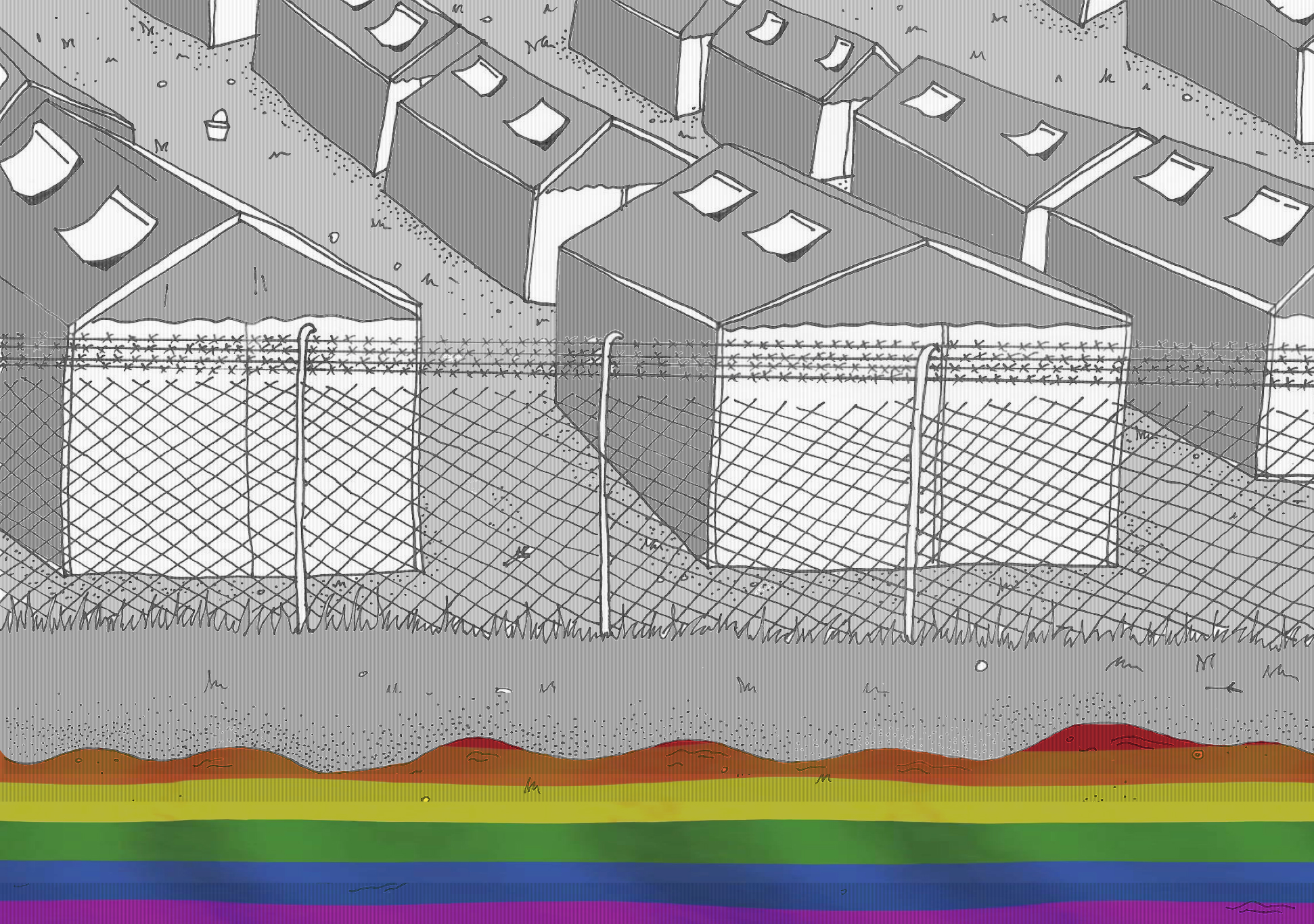Being A Good Ally: Understanding the Queer/Seeking Asylum Intersection
By Matilda Douglas-Henry
The queer community – much like any group – is broad and varied in its embrace. There are many junctions within it that only further the scope of unrivalled uniqueness. You can identify as queer and Black/a gay feminist/a bisexual Muslim/a trans woman living with mental illness. The options are limitless, and one does not necessarily require a label to navigate these intersections.
I am a white middle class cis queer woman, and as such, am aesthetically and experientially privileged. Growing up with two mothers was something I feared disclosing to people for just a few formative years, and this only stemmed from my own naïve insecurities.
I cannot deny my privilege, and indeed, I do not want to. We live in a climate where it is more important than ever to tell your own story, and not speak on behalf of others. So, how do I express my opinions, as a privileged white member of the queer community whose interests are grounded in feminism, racial politics and trans activism?
It is pretty straightforward. Interrogate and reflect on how your privilege impacts you (even if you’re convinced you are so ~progressive~ that it doesn’t have an effect) and learn how to be a good ally.
Understanding what it is to be an ally is paramount to being politically aware across the board, but it holds particular weight in the queer community. Much like the danger of white feminism, people who identify as LGBTQIA+ run the risk of thinking that they have the right to speak knowledgeably on whatever they please because they are part of a minority.
You know the one. The misogynistic and racist gay man, or the infamous TERF lesbian movement. These are quite extreme examples, but the issue is much more pervasive than that. It may be happening at a Black Lives Matter rally, where a young white queer might try and educate a person of colour about the gravitas of the BLM movement.
I’ve started calling it Free Pass Syndrome, and it’s a problem.
This is not about being forbidden access to social issues you care about just because you do not explicitly belong to that group. Conversely, I see it as an opportunity to educate yourself even further about these things – to understand, with greater clarity, why this matters to you. From what perspective will you choose to engage with this so you are not stepping on people’s toes, and it ultimately becomes unique to what you have experienced?
My key piece of advice is to go to events – be they lectures, film screenings or panels – and listen. And I have a really great place for you to start.
In Australia’s current political climate, no greater pain is felt than by people seeking asylum – those whose innocence and integrity are trampled upon by our country’s violent, fear-mongering government. How complex it must be, then, to identify as a queer person seeking asylum, which would impose not only a greater threat to your wellbeing, but also a perpetual questioning of the validity of your identity.
It is a heartbreaking situation that I could not possibly begin to understand – but I want to hear these stories now more than ever; now that the government wants to silence their perspective.
“The Plight for Equality: Seeking Asylum and Being Queer” is an upcoming event at the Wheeler Centre in Melbourne – a panel discussion that seeks to break down the seeking asylum/identifying as queer intersection. The talk is being coordinated by Road to Refuge, an initiative that advocates for Australians to “make their own minds up about asylum seekers and refugees”. They facilitate screenings, workshops and pop ups around the city that question the way many Australians have detached themselves from the seeking asylum crisis.
The human rights/queer rights nexus is a pivotal one in considering how people like you and I can support our queer family members who are seeking asylum, and this panel will allow attendees to gain deeper insight into this intersection.
The speakers offer a diverse range of perspectives: Kiarash Zangeneh is a pro-democracy and gay rights activist who left Iran due to his sexuality, who is now living in Melbourne as an artist/musician. Anna Brown is the Director of Advocacy and Strategic Litigation at the Human Rights Law Centre. Tina Posunkina is a refugee advocate who works with the Refugee Advice and Casework Service, and wrote her thesis on queer refugee women. The panel will be moderated by Roj Amedi, an editor, writer and advocate.
There is a lot going on in the world right now – so much that is beyond the scope of what I, a white cis woman, will ever experience.
“We as a country have gaslighted the lived experiences of refugees, and have made it almost impossible to hear their voices; yet those stuck in our system of abuse continue to fight,” Roj said when speaking at a Block The Bill rally in Melbourne last week.
“I want everyone to acknowledge the constant resistance.”
Merely choosing to attend an event such as this one will offer silent support to people who really need it right now. Silence – as far as being an ally goes – is often the best way to go.
I will be at “The Plight for Equality”, learning quietly; endeavouring to be a good ally. And so should you.
Buy tickets to the event here.
Image: Samuel Leighton-Dore.

